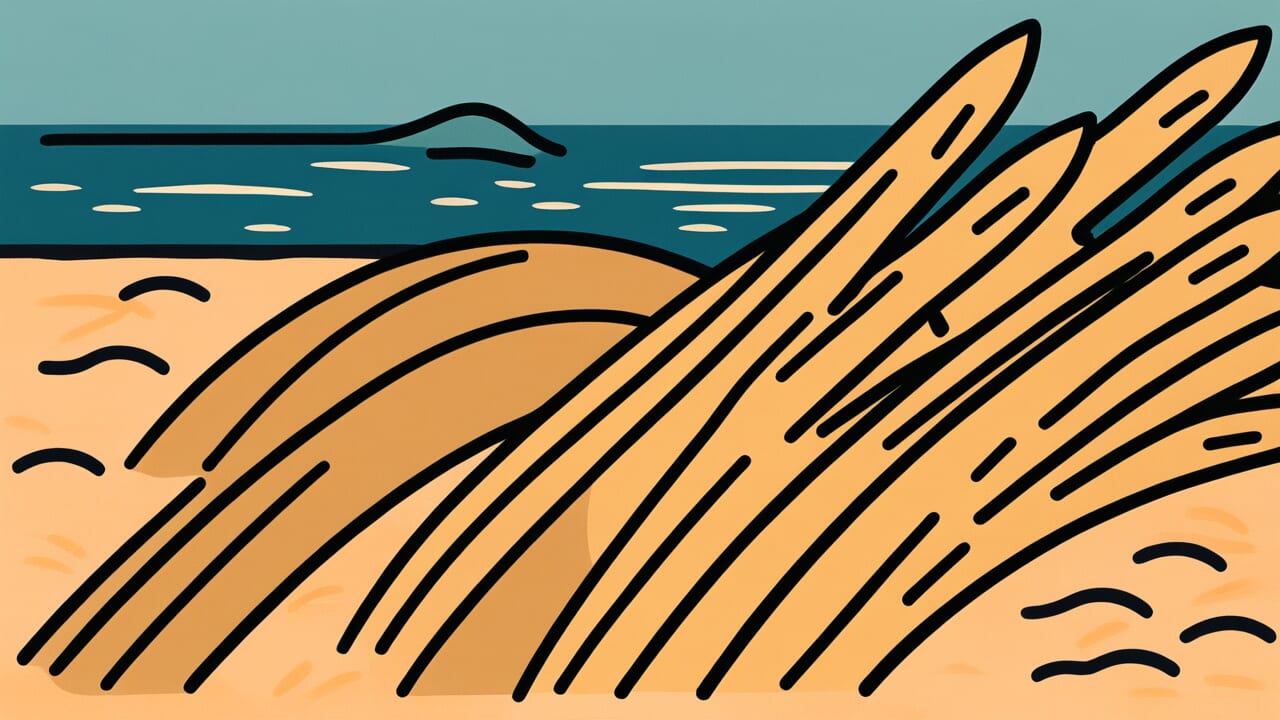How to Read “The reeds of Naniwa are the beach sedges of Ise”
Naniwa no ashi wa Ise no hamaogi
Meaning of “The reeds of Naniwa are the beach sedges of Ise”
This proverb means that even similar things can have different names and values depending on their location or environment.
The reeds of Naniwa and the beach sedges of Ise are essentially similar plants. Yet they’re called by different names because they grow in different regions.
This applies not just to names, but to value and evaluation too. Something ordinary in one place might be considered rare or special somewhere else.
The opposite can also happen—something valued in one location might be dismissed in another.
People use this proverb to explain that value isn’t absolute. It’s relative and depends on place and situation.
For example, a person with certain skills might be highly valued in one environment but overlooked in another. The same product might have different worth in different markets.
Even today, this expression offers insight into how perspective changes based on location and position.
Origin and Etymology
No clear written records explain the origin of this proverb. However, its components reveal an interesting background.
Naniwa is an old place name referring to the area around present-day Osaka. It was known for wetlands at the mouth of the Yodo River.
Reeds grew abundantly in this region, defining the waterside landscape. Ise refers to the coastal area of Ise Bay in Mie Prefecture.
Plants called beach sedges grew naturally along these shores.
In fact, reeds and beach sedges are botanically very close relatives. Some say they’re the same grass family plants.
Essentially the same plant was called “reeds” in Naniwa and “beach sedges” in Ise.
This proverb emerged because people noticed something important through regional exchange. They saw that the same thing could have different names in different places.
Using familiar waterside plants as material, they expressed a universal truth. When location changes, so do names and treatment.
By using specific place names like Osaka and Ise, the expression became memorable and easy to recall.
Usage Examples
- Your resume might be ordinary in Tokyo, but you’d be in high demand in rural areas—truly “the reeds of Naniwa are the beach sedges of Ise”
- This technology wasn’t appreciated domestically but became a huge hit overseas—”the reeds of Naniwa are the beach sedges of Ise”
Universal Wisdom
This proverb has been passed down because people long ago understood “the relativity of value.” We tend to assume things have absolute worth.
But in reality, the same thing gets evaluated very differently depending on who’s looking, where they’re looking, and when they’re looking.
Humans have a tendency to treat evaluations from familiar environments as absolute. What’s ordinary in your hometown seems ordinary everywhere.
You assume your group’s evaluation is universal. This assumption sometimes causes suffering and sometimes makes you miss big opportunities.
Our ancestors felt this truth through travel and trade. A plant treated as a weed in one land becomes a valuable resource in another.
A skill considered worthless in one group becomes treasured in another. Through accumulated experiences like these, deep insight emerged.
Value isn’t fixed—it’s fluid and depends on context.
This proverb teaches us humility and flexibility. Don’t get too excited or discouraged by evaluations in your current location.
Keep a broader perspective. Remember that changing your environment can open new possibilities. That’s the universal wisdom contained in this proverb.
When AI Hears This
When the human brain judges value, it’s strongly influenced not by the object’s actual properties but by what “framework” presents it.
What’s interesting about this proverb is that reeds and beach sedges are actually the same plant. Yet just by attaching the labels “Naniwa” and “Ise,” they’re perceived as different things.
Cognitive scientists Tversky and Kahneman discovered the framing effect through experiments. They presented the same surgery success rate as either “90 percent survival rate” or “10 percent mortality rate.”
Patients’ choices changed dramatically based on the wording. The numbers were identical, but different word frameworks reversed the decision.
This proverb has the same structure. The urban label of Naniwa and the regional label of Ise create different value reference points for identical plants.
What’s more interesting is that the human brain struggles to judge “absolute good or bad.” It constantly evaluates things relatively by comparing them to something else.
Wine experiments showed that when the same wine has an expensive label, the brain’s reward system actually responds more strongly. It’s not an illusion—people genuinely taste it as better.
This proverb recognized something hundreds of years ago. Human value judgment systems have a shortcut circuit that judges by “the sign rather than the contents” for information processing efficiency.
Lessons for Today
This proverb teaches modern people not to judge their own value based on just one place or environment.
If you feel undervalued where you are now, maybe you lack nothing. Perhaps the environment simply doesn’t fit you.
Just as the reeds of Naniwa are called beach sedges in Ise, changing location changes perception. Have courage to change your environment through career changes, relocation, or joining new communities.
You might find a place where your true value shines.
At the same time, this proverb teaches humility when evaluating others. Don’t judge people and things by your standards alone.
Understand that different contexts create different values. This understanding creates tolerance for accepting diversity.
Today’s world is increasingly global. You don’t need to be tied to one place.
You can connect with the entire world online. You have the freedom to search for the place that needs your talents and individuality most.
Don’t be bound by current evaluations. Look toward the wider world. You’ll surely find a place that makes you shine.


Comments